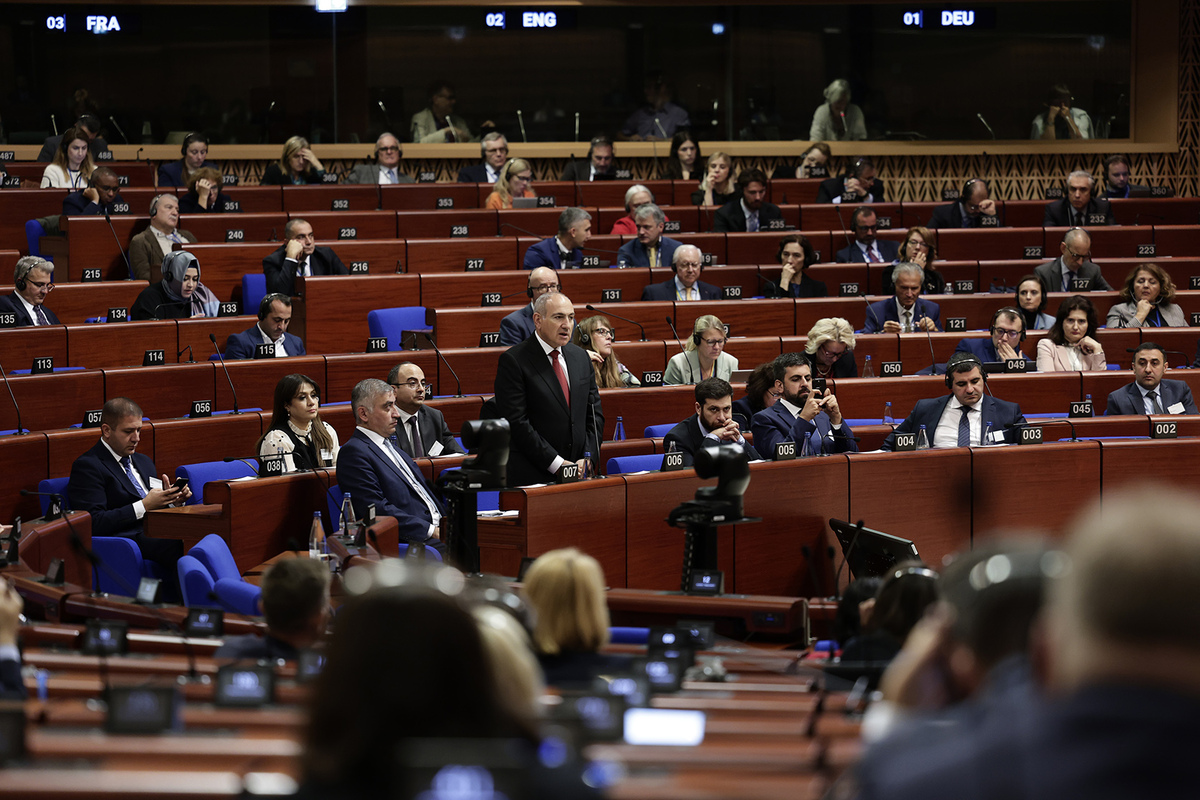Armenia does not need to amend its Constitution to sign a peace agreement with Azerbaijan, Prime Minister Nikol Pashinyan told the Parliamentary Assembly of the Council of Europe (PACE) on Monday. He stressed that the draft treaty already provides sufficient legal guarantees for both sides.
Pashinyan dismissed Baku’s claims that Armenia’s Constitution contains territorial references to Azerbaijan. He noted that in September 2024, Armenia’s Constitutional Court reviewed the regulations governing the Armenia–Azerbaijan border delimitation commissions — the first bilateral interstate document between the two countries — and confirmed that it did not contradict Armenia’s Constitution.
The Prime Minister recalled that both in the Prague Declaration of October 2022 and in the draft peace agreement already initialed, the two countries reaffirmed their commitment to the 1991 Alma-Ata Declaration, which upholds the territorial integrity and sovereignty of the former Soviet republics within their existing borders.
“The peace agreement explicitly states that neither side has territorial claims against the other, and both commit not to raise such claims in the future,” Pashinyan said. He added that the treaty also prohibits either side from citing domestic legislation as grounds to avoid implementing its provisions.
Under Armenian law, once the peace agreement is signed it must be submitted to the Constitutional Court for review. If approved, Parliament can ratify it, giving the treaty “higher legal force than domestic legislation,” Pashinyan noted. “Therefore, in the context of the peace agreement, there is no constitutional problem at all.”
While emphasizing that constitutional amendments are unnecessary for the treaty, Pashinyan reiterated Armenia’s broader need for a new Constitution, citing issues of public trust. He argued that years of electoral falsifications and contested constitutional referendums have created what he called “an allergic reaction” among citizens toward state institutions.
“In Armenia, many citizens feel that the existing constitutional order was not established by their free decision. The only way to overcome this is through the adoption of a new Constitution that is genuinely owned by the people,” he said.
Concluding his remarks, Pashinyan stressed that even if Azerbaijan’s concerns were considered valid, the most effective way to resolve them would still be through signing and ratifying the peace agreement, which explicitly bans future territorial claims.


